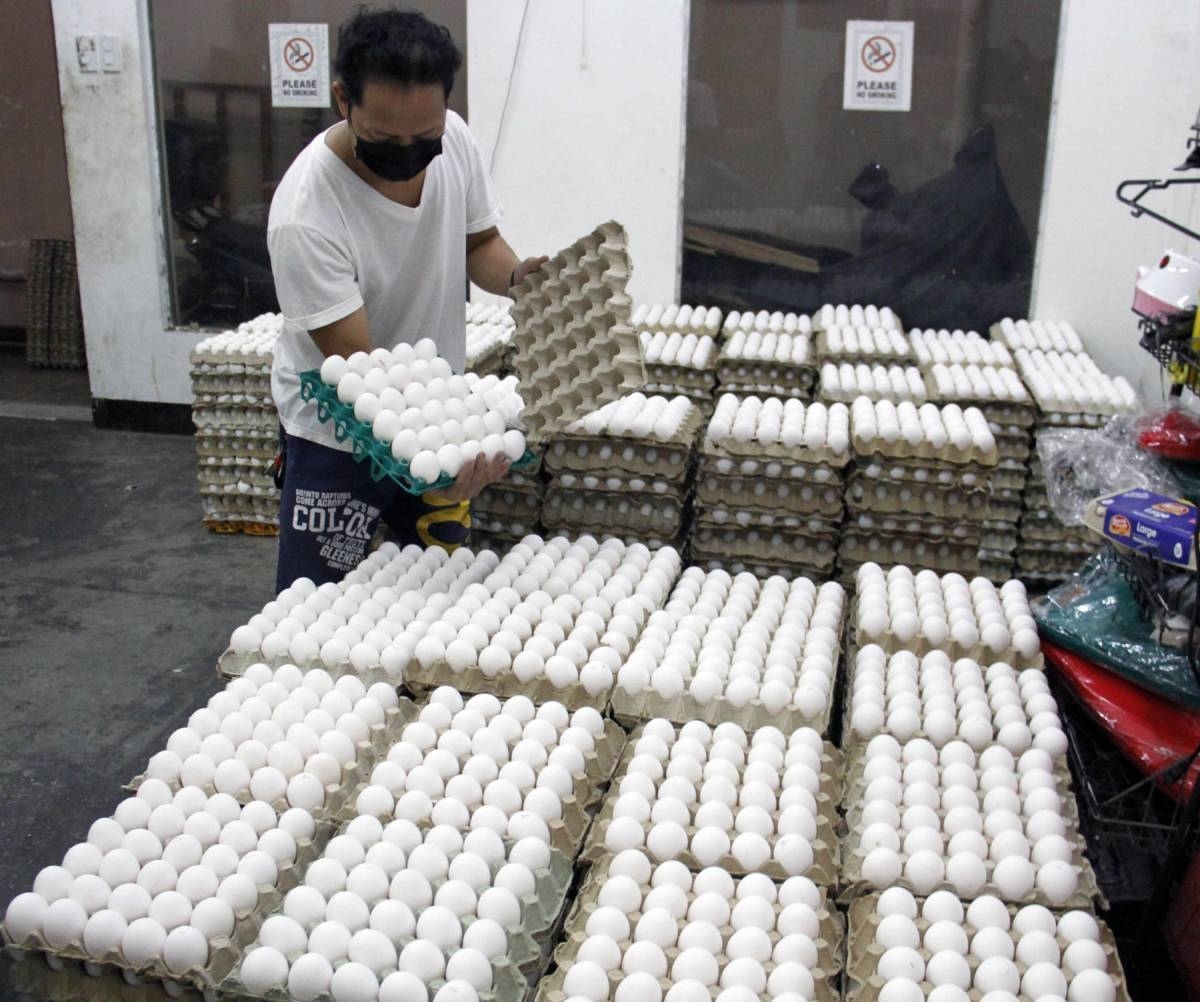(UPDATE) THE bird flu outbreak in Luzon, coupled with the high cost of feeds, has been blamed for the shortage of eggs that causes prices to soar.
The bird flu led to the culling of 7 million chickens, drastically cutting egg production, the Philippine Egg Board said.
In an interview with The Manila Times, Batangas Egg Producers Association (BEPA) President Dr. Jesus Medina admitted that egg production and prices were affected by the avian influenza outbreak.
“There is [shortage of eggs] because of bird flu. The egg production has fallen so much in the entire Philippines,” Medina said.
“Here in Batangas, there is no problem of bird flu. There was an outbreak in an eco-farm involving ducks, but it was contained already,” he added.
Medina said that consumers should not blame the egg producers for the spike in prices, saying the farmgate price of eggs in the province ranged between P6.90 and P7 per piece.
However, based on the monitoring of the Department of Agriculture, the retail price of eggs in the wet markets in Metro Manila ranged between P8 and P9.
“I already appealed to our members not to increase the farmgate prices of eggs. If they are earning already, that’s enough so as not to affect the consumers. We know that eggs are part of the breakfast of every household,” Medina said.
He added that traders should also limit the retail prices of eggs.
“If the farmgate price that we have is around P6.90 to P7 [per piece], the P9 [per piece] is too much. The producers are not earning that much but they are selling at higher prices,” he said.
He also appealed to the government to help address the increasing prices of feeds.
“The price of feeds is causing the increase in the production cost,” Medina said.
Philippine Egg Board Chairman Gregorio San Diego said that many egg producers stopped their operations even before the outbreak of avian influenza.
“Prior to the bird flu in 2021, many broiler producers shifted to chicken layers since they felt they had no competitors as eggs cannot be imported. The DA (Department of Agriculture) failed to regulate the numbers who ventured into the egg industry,” San Diego said.
In the fourth quarter of 2021, many egg producers suffered losses because of the high cost of feeds and low prices of eggs.
“Many small and medium egg producers stopped their operation while the big companies decided to decrease their production and volume. Last year, adenovirus affected us and then later, the bird flu, millions of chickens were culled in Central Luzon,” San Diego added.
The egg producers who stopped their operations are having second thoughts of resuming their business because of the uncertainties brought by the bird flu outbreak.
“The layer industry was hard hit; the bird flu started with the ducks, and it spread to the layers. Those who depopulated don’t want to invest again, as they are afraid that their chickens will be affected. Those involved in egg production really declined as you need big capital to start this business,” San Diego said.
He echoed Medina’s complaint on the high cost of chicken feed.
“Our feed for layers used to be around P20 per kilo but now it’s P34. We spend at least P5 daily for a chicken layer. This does not include the electricity and labor cost,” he said.
Even the prices of yellow corn, a major ingredient for feed, increased to P25 per kilo from P14 per kilo, San Diego said.


Leave A Comment